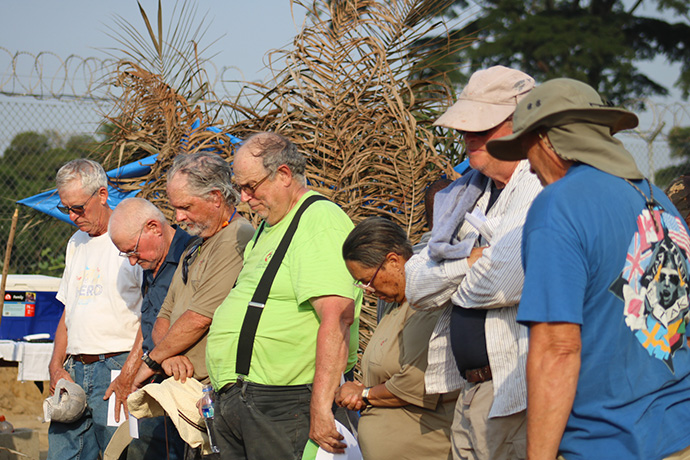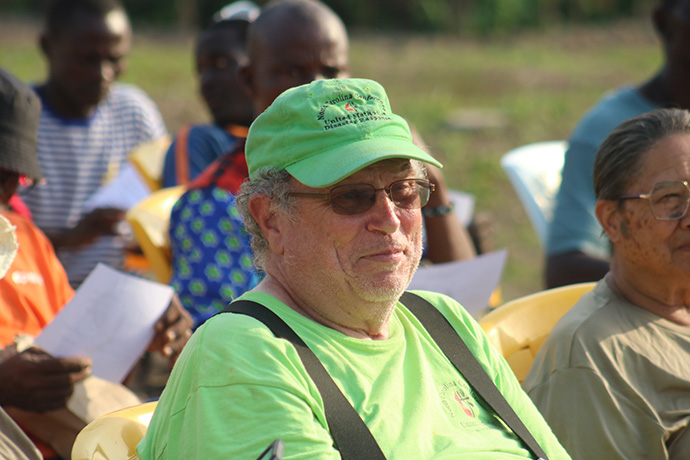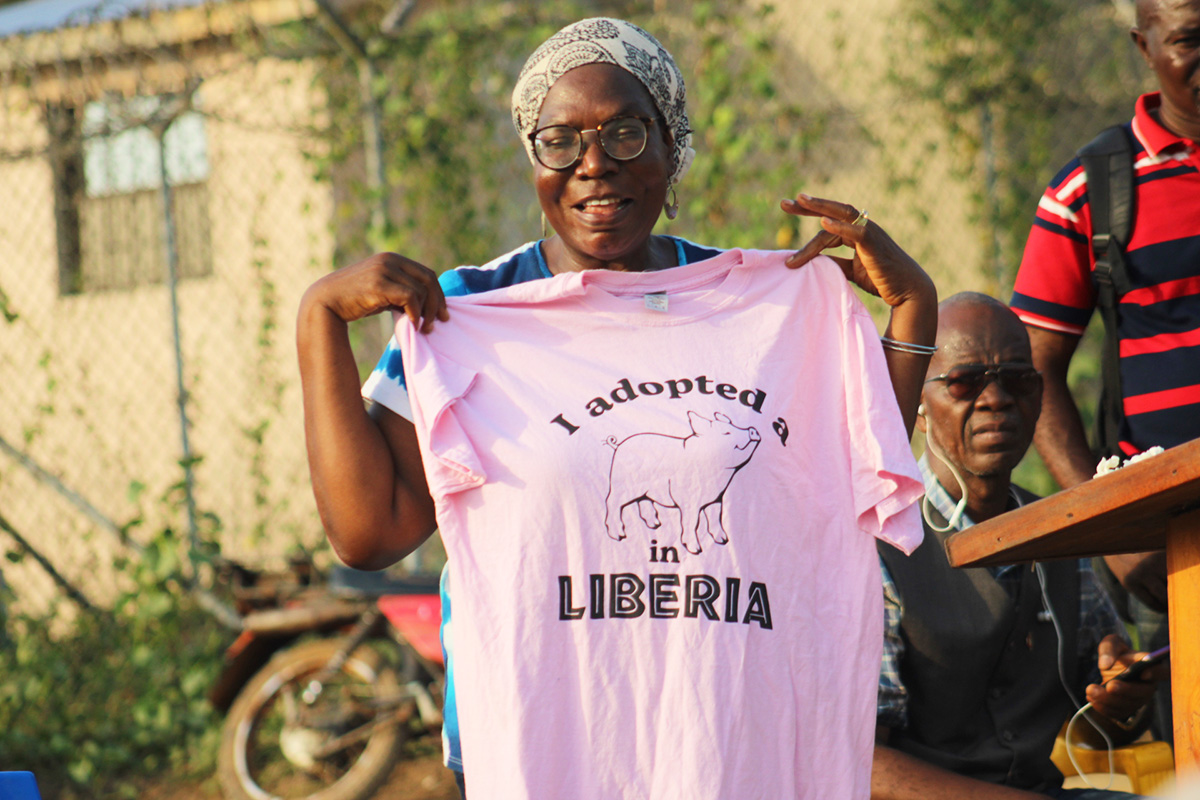Key points:
- Through partnership with the North Carolina Conference, Liberian United Methodists share benefits with their neighbors.
- A butchery, valued at more than $20,000, is under construction in Liberia.
- “We want (Liberian United Methodists) to make money that will enable them to feed their family, send their children to school and be generous givers to the work of the church in Liberia,” said the Rev. Bill Haddock.
“I am not an agriculturalist, but my passion is agriculture,” said Bishop Samuel J. Quire Jr. “I think the only way that this church can be empowered financially is through agriculture.”
In May, Quire, the episcopal leader of the Liberia Area, dedicated a butchery plant for pig farmers in Ganta City, Nimba County. He noted that the butchery plant would empower United Methodist pig farmers in the county, as well as the entire central area of Liberia. “This butchery plant is for all Liberians in this part of our country,” Quire said.

The initiative between two annual conferences — North Carolina in the United States and Liberia — allows the church in Liberia to contribute to the Liberian government’s infrastructural development plans. “While partnering with our brothers and sisters across the globe,” Quire said, “empowering Liberians who are members of The United Methodist Church is the best way we can enhance the government’s self-sustainability programs for its people.”
Quire asserted that the church needs to use its land to empower its members financially through agriculture. He thanked the North Carolina Conference for contributing to his agricultural dream for the Liberia Episcopal Area.
More from Bishop Quire
“One of the things that will keep us together as United Methodists,” he said, “is mission.” He added that the debate about disaffiliation is not helpful for the church’s growth and development.
The Rev. Bill Haddock, leader of the North Carolina Conference mission team to Liberia, expressed hope that the butchery plant would be a viable place where pig farmers bring their products for good business transactions.
“We want them to make money that will enable them to feed their family, send their children to school and be generous givers to the work of the church in Liberia,” he said. He indicated that the butchery plant construction helped to fulfill his annual conference’s desire to empower Liberians through pig farming.
“The North Carolina Conference,” Haddock said, “wants to give United Methodists in Liberia a hand that will pull them out of poverty, not a handout that will keep them in a position of poverty.” He said the butchery plant has cost $20,000 so far and more money is needed to get it to a perfectly functioning and operating stage. He thanked United Methodists who contributed and are still expected to support the project.

Priscilla Legay Jaiah-Gilayeneh, director of the Ganta Mission Station, said the butchery plant was a dream come true for both United Methodists and the people of Nimba County. She said the mission station is involved with other agriculture initiatives, based on Quire’s rallying call for agriculture in 2017.
The mission station, Jaiah-Gilayeneh said, is now funding operational activities from resources generated from agricultural products. She named beekeeping, as well as palm, rubber and cattle farming, as activities from which the Ganta Mission Station and United Methodists in that part of Liberia are benefiting.
E Julu Swen is editor and publisher of West African Writers, an online publication about United Methodist happenings in West Africa.
News media contact: Julie Dwyer at newsdesk@umnews.org. To read more United Methodist news, subscribe to the free Daily or Weekly Digests.



